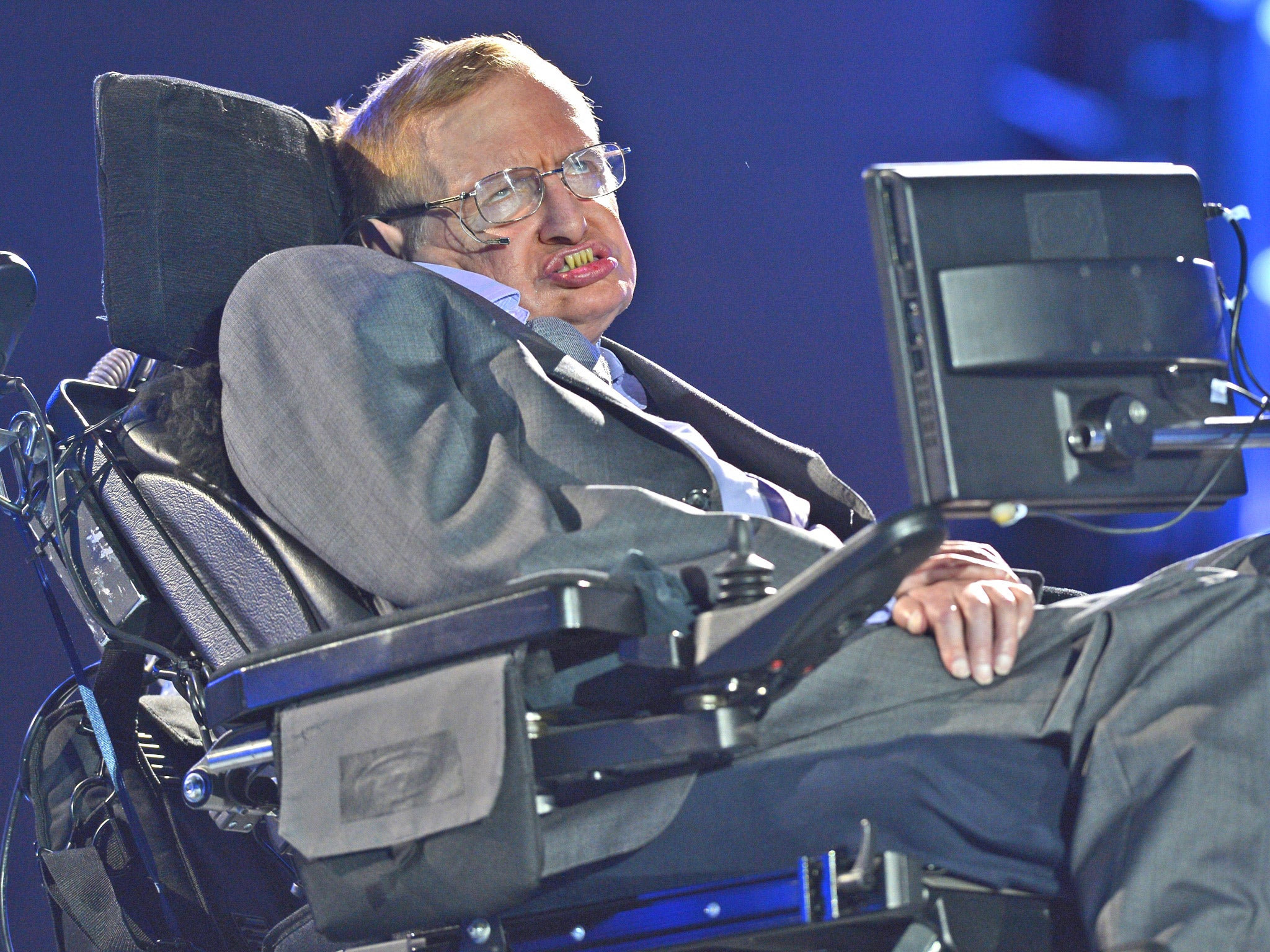Stephen Hawking speaks out in favour of assisted suicide
71-year-old cosmologist had previously been less supportive of the right to die as 'there is always hope'

Your support helps us to tell the story
From reproductive rights to climate change to Big Tech, The Independent is on the ground when the story is developing. Whether it's investigating the financials of Elon Musk's pro-Trump PAC or producing our latest documentary, 'The A Word', which shines a light on the American women fighting for reproductive rights, we know how important it is to parse out the facts from the messaging.
At such a critical moment in US history, we need reporters on the ground. Your donation allows us to keep sending journalists to speak to both sides of the story.
The Independent is trusted by Americans across the entire political spectrum. And unlike many other quality news outlets, we choose not to lock Americans out of our reporting and analysis with paywalls. We believe quality journalism should be available to everyone, paid for by those who can afford it.
Your support makes all the difference.Scientist Professor Stephen Hawking has spoken out in favour of assisted suicide for people with terminal diseases.
Prof Hawking, who has motor neurone disease (MND), had previously been less supportive of the right to die, saying it was a mistake as "there is always hope".
In an interview which will reignite the heated debate surrounding euthanasia, the 71-year-old cosmologist told the BBC: "We don't let animals suffer, so why humans?"
He said: "I think those who have a terminal illness and are in great pain should have the right to choose to end their lives and those who help them should be free from prosecution.
"But there must be safeguards that the person concerned genuinely wants to end their life and they are not being pressurised into it or have it done without their knowledge or consent, as would have been the case with me."
Prof Hawking was diagnosed with his disabling and incurable condition aged 21 and told that he had just two or three years to live.
Following a bout of pneumonia in 1985, he was placed on a life support machine which his first wife, Jane Hawking, had the option to switch off.
Recovering from the disease, Prof Hawking went on to complete his popular science best-seller A Brief History of Time, which sold more than 10 million copies worldwide.
Only 5% of people with the kind of MND he has - called amyotrophic lateral sclerosis (ALS) or Lou Gehrig's disease - survive for more than a decade after diagnosis.
Referring to euthanasia in 2006, he said: "The victim should have the right to end his life, if he wants. But I think it would be a great mistake.
"However bad life may seem, there is always something you can do, and succeed at. While there's life, there is hope."
PA
Join our commenting forum
Join thought-provoking conversations, follow other Independent readers and see their replies
Comments